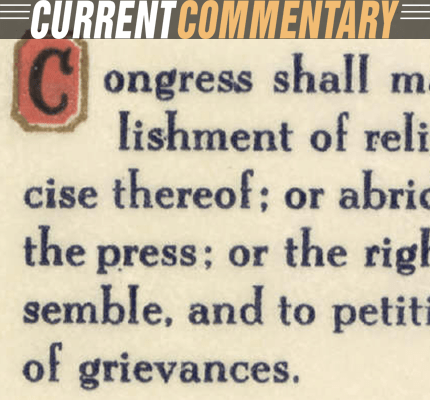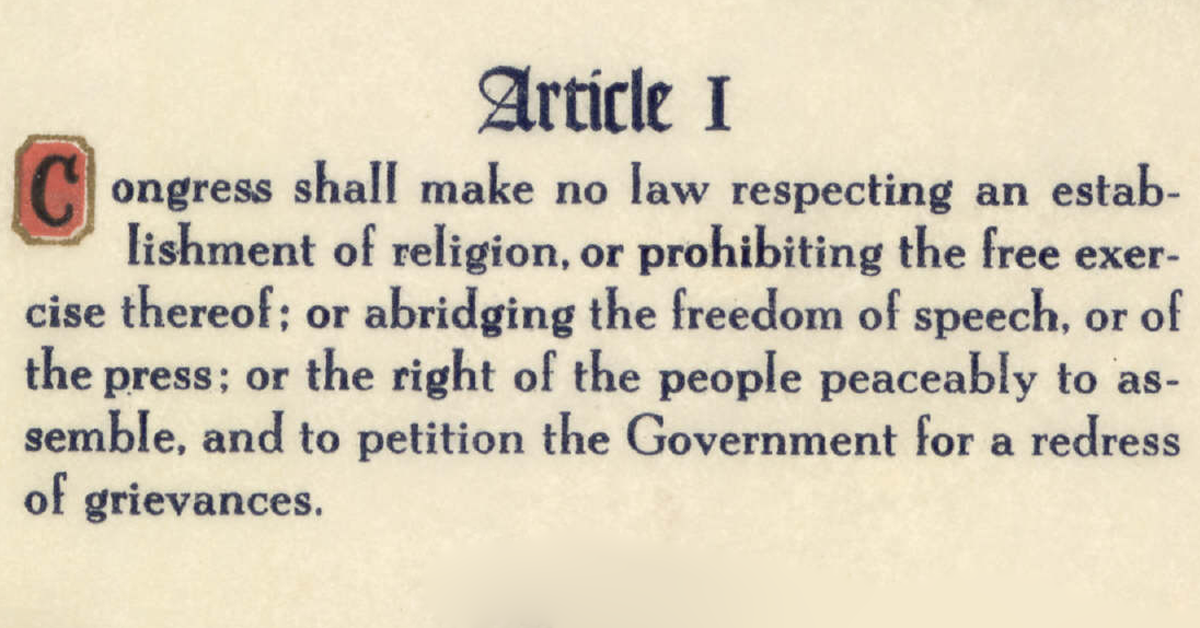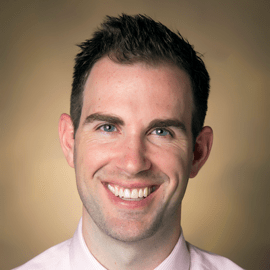
Tennessee’s Campus Free Speech Protection Act – A Victory For Free Speech?
By Dustin A. Wood, Ph.D.
The University of California’s Berkeley campus was in flames. More than 50 years after it became the birthplace of the Free Speech Movement, Berkeley found itself at the center of another protest-related controversy. This time, matters turned violent. In response to a planned appearance by Milo Yiannopoulos, then editor of Breitbart News, a group of approximately 150 protestors set fires, threw Molotov cocktails and other incendiaries at police officers, and attacked members of a separate protesting crowd. Berkeley police canceled Yiannopoulos’s speech and escorted him from campus for his safety.
The riot at Berkeley this February was not an isolated incident. In January, a Yiannopoulos appearance was called off at the University of California-Davis amid protests. The same month, a man was shot outside a Yiannopoulos event at the University of Washington. In April, Auburn University scheduled (albeit unknowingly), canceled (for safety concerns), and then re-scheduled (at the orders of a federal judge) a speech by white supremacist and President of the National Policy Institute Richard Spencer (who more recently led a torch-bearing march through Charlottesville, Virginia in protest of the sale of a Robert E. Lee statue). Spencer’s event at Auburn was not without spectacle—namely a large demonstration with hundreds of protestors, three of whom were arrested for disorderly conduct. Berkeley found itself in the news again in April, this time for canceling an appearance by conservative commentator Ann Coulter out of fear of more potentially violent protests. Controversy surrounding free speech on campus is not a new phenomenon, of course. Nonetheless, these recent events offer context to a Tennessee bill that was signed into law in May.

Tennessee’s Campus Free Speech Protection Act
The new Tennessee law, coined the Campus Free Speech Protection Act, aims to ensure that “public institutions of higher education embrace a commitment to the freedom of speech and expression for all students and faculty.” These public institutions, the law details, should not “stifle” free speech by “implementing vague or overbroad speech codes, establishing free speech zones, imposing unconstitutional prior restraints on speech, or disinviting speakers based on the anticipated reaction or opposition of others to the content of speech.” Moreover, the law requires every institution to adopt a policy that affirms students’ constitutional right to free speech and to express a commitment to giving students the “broadest possible latitude” to exercise this right. The law notes that institutions should “greatly value civility and mutual respect,” but that it is “not the proper role of an institution to attempt to shield individuals from free speech, including ideas and opinions they find offensive, unwise, immoral, indecent, disagreeable, conservative, liberal, traditional, radical, or wrong-headed.” The act, which will take effect on January 1, 2018, recognizes that some restrictions on speech that are not considered a violation of the First Amendment are acceptable (e.g., constraints of time, place, and manner, as well as content- and viewpoint-neutral restrictions that are narrowly tailored to satisfy a significant institutional interest while leaving open alternative channels of communication).
The Tennessee law—and similar bills elsewhere—has been met with both skepticism and support. Some, such as the American Association of University Professors, are hesitant to support the Campus Free Speech Protection Act because of their discomfort with the demands the law places on administrations to manage free speech and their concern that the legislation compromises institutional autonomy. Others are suspicious of the motives of those pushing these sorts of measures—some of which are products of conservative think tanks, presumably in response to conservative commentators being shut out from colleges and universities. Those in support of Tennessee’s law, such as Robert Shibley, Director of the Foundation of Individual Rights in Education, see it as a victory for free speech at a time when First Amendment protections at public institutions are, from their perspective, in peril. Shibley calls the Campus Free Speech Protection Act “the most comprehensive state legislation protecting free speech on college campuses that we’ve seen be passed anywhere in the country” (FIRE).
A Path Forward
The mere existence of Tennessee’s Campus Free Speech Protection Act could be viewed as an indictment on the state of free speech at public institutions in the United States. In our current context, it cannot be assumed that public institutions will support the free speech rights of all faculty and students. To the contrary, many institutions have actively worked to restrict speech—especially speech that the mainstream might find offensive. The merits of these restrictions and the context in which they arise have been discussed in the popular press (e.g., “The Coddling of the American Mind”) and debated in our discipline’s journals (e.g. First Amendment Studies (2015), 49, No. 1; First Amendment Studies (2016), 50, No. 2).
Ultimately, the Campus Free Speech Protection Act asks us to individually reflect on an important question: Do I support the free speech of those with whom I disagree—even those whose opinions I find offensive? To truly be an advocate for free speech, I believe, one must support the free speech of those he or she finds disagreeable. From this perspective, free speech is of great value to a tolerant society. Free speech, Lee Bollinger notes, “involves a special act of carving out one area of social interaction for extraordinary self-restraint, the purpose of which is to develop and demonstrate a social capacity to control feelings evoked by a host of social encounters” (cited in Chemerinsky, 2011, p. 958). Are we carving out that space by supporting free speech at our public institutions, or are we contributing to a siloed society wherein we never encounter or engage with those who think and speak differently from ourselves? The Campus Free Speech Protection Act, one can hope, carves out spaces for dialogue. I believe our public institutions better serve our society (and themselves) if they are committed to supporting free speech. This approach can, at times, be risky, but the potential reward is greater than what can be reaped when institutions are in the business of shielding faculty and students from offensive speech.
There might also be a self-preservation argument to support Tennessee’s law. It’s important that we not let our personal opinions about those behind the act—and similar legislation—blind us from seeing that if the letter of the law is applied, the law protects the speech of all individuals—including progressive and liberal speakers—not just conservative commentators. Thus, while some might believe that the law is particularly disadvantageous to them now, at some point in the future, they might find themselves relying on the law (or similar legislation elsewhere) to ensure that their voices are not silenced.
Tennessee’s Campus Free Speech Protection Act reminds me of a disclaimer my late mentor included in his syllabi, a line that I now include in my First Amendment syllabus: “It is not your right to not be offended.” This is not to say that we should seek to offend others with unproductive speech. Rather, it’s helpful to remember that reasonable people can disagree. At an institution of higher learning, we are (hopefully) likely to encounter a diversity of opinions. Disagreeing with someone does not inherently mean that we despise that person’s identity or view that person as unimportant or unworthy of respect. Of course, not all people we find disagreeable are reasonable. So, what are we to do with the unreasonable person who espouses offensive speech with no intention of engaging in a dialogue? In that case, I still side with Justice Louis Brandeis, who famously argued that “the remedy to be applied is more speech, not enforced silence” (Whitney v. California). As Justice Robert Jackson warned, “Those who begin coercive elimination of dissent soon find themselves exterminating dissenters. Compulsory unification of opinion achieves only the unanimity of the graveyard” (West Virginia State Board of Education v. Barnette).
References
- American Association of University Professors. Legislation on Free Speech. Published online: May 11, 2017.
- Erwin Chemerinsky (2011). Constitutional Law: Principles and Policies, 4th Edition. Aspen Publishers.
- FIRE. Comprehensive campus free speech bill becomes law in Tennessee. Published online: May 10, 2017.
- First Amendment Studies (2015), 49, No. 1. Special issue on Academic Freedom.
- First Amendment Studies (2016), 50, No. 2. Special issue on Trigger Warnings.
- Greg Lukianoff and Jonathan Haidt. The Coddling of the American Mind. The Atlantic. September 2015 issue.
- NPR. White Nationalist Richard Spencer's Speech At Auburn Sparks Protests, Arrests. Published online: April 19, 2017.
- NPR. States Consider Legislation To Protect Free Speech On Campus. Published online: May 5, 2017.
- Chris Quintana and Andy Thomason. The States Where Campus Free-Speech Bills Are Being Born: A Rundown. The Chronicle of Higher Education. Published online: May 15, 2017.
- Stephanie Saul. The Conservative Force Behind Speeches Roiling College Campuses. The New York Times. Published online: May 20, 2017.
- Tennessee’s “Campus Free Speech Act”, Senate Bill 723. Available online.
- West Virginia Board of Education v. Barnette, 319 U.S. 624 (1943).
- Whitney v. California 274 U.S. 357 (1927).
Online Resources & Further Reading
- Justia
- Oyez
- SCOTUS Blog
- Thomas Tedford and Dale Herbeck (2017). Free Speech in the United States. Strata Publishing Inc.


